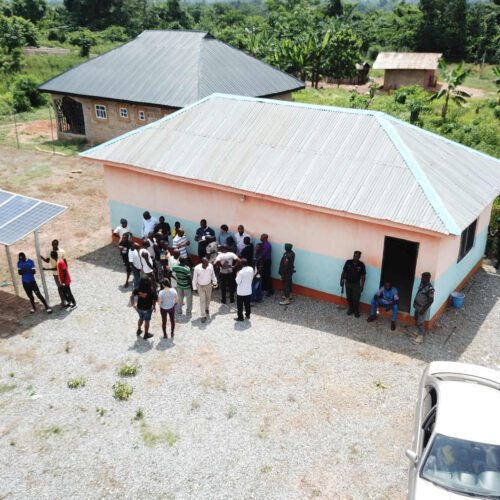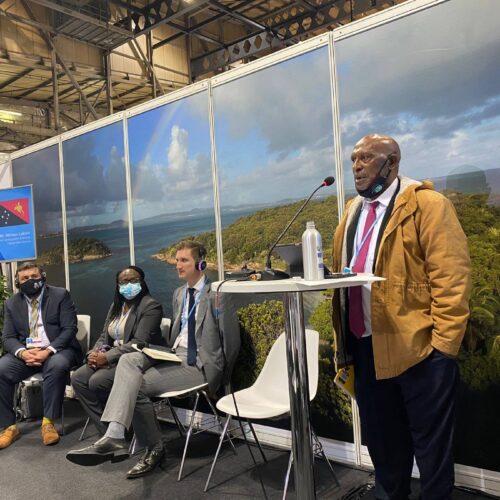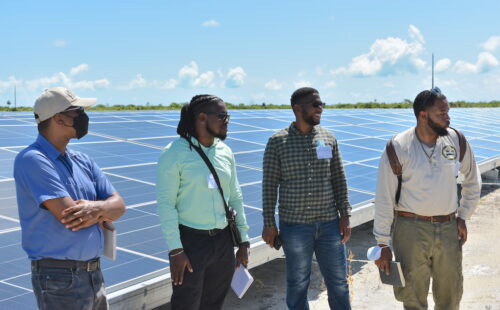
Changemakers of Today, Leaders of Tomorrow
Empowering Leaders of the Clean Energy Transition in the Caribbean
Lorenza Carey remembers playing as a kid in his home in The Bahamas, and suddenly, the lights would go dark. In fact, growing up in the islands, you know that at some point, the power is going to go out. These abrupt endings of playtime moments were what intrigued him to create a reliable source of energy for kids all over The Bahamas. When Carey’s grade school had a “dress up as your dream job” day, he sported a hard hat, a vest, and steel-toed boots. “Mrs. Burrows, I want to be an electrical engineer, I want to work in the power industry,” he told his fifth-grade teacher. Many years later, Carey’s dream came true, and he now works as an electrical engineer for his local utility, Bahamas Power and Light, helping The Bahamas energy system become more resilient and reliable through renewable energy.
Carey is one of the participants of the Energy Transition Academy’s Inaugural Fellowship Program, which brings together people from islands across the Caribbean to learn about and advance clean energy projects.
Clyde Potter is another inaugural fellow. An electrical engineer and metering foreman with the British Virgin Islands Electricity Corporation, Potter has experienced numerous Category 5 hurricanes. These experiences have shown him the importance of transitioning to clean and local energy, and he wants to use the knowledge from the fellowship to work toward protecting his community and alleviating the impacts of climate change.
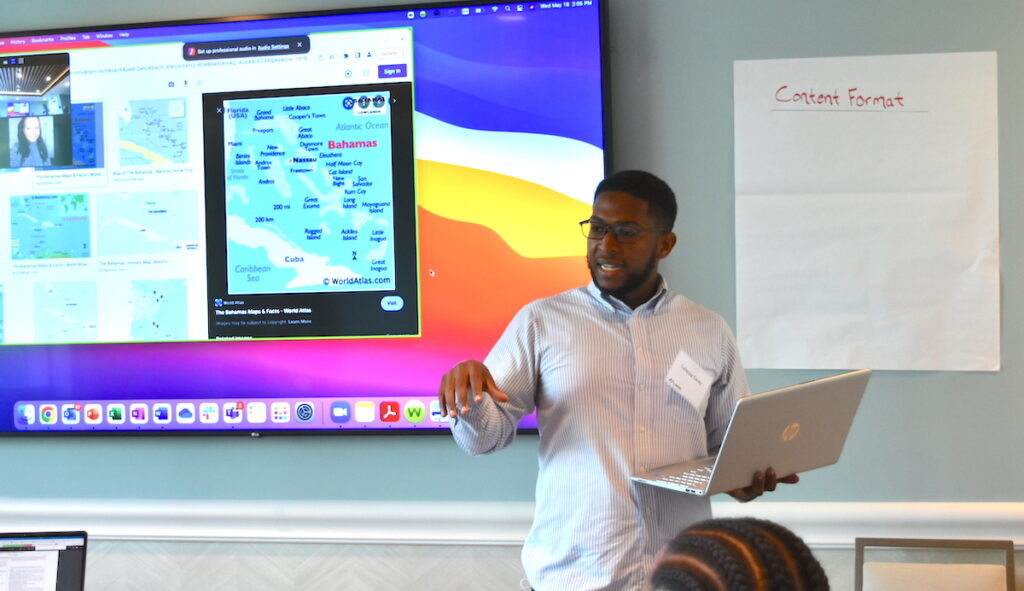
Lorenza Carey giving a presentation during the Communications Session at the Inaugural Global Fellowship Summit
Investing in People
Caribbean islands are some of the most vulnerable communities globally when it comes to climate change. Frequently occurring hurricanes can destroy communities and leave people without the power needed to recover and save lives. Constantly importing fuels is costly. However, with the abundant sunshine of the Caribbean, island nations are well suited to harness solar energy through microgrids year-round. Islands with wind and geothermal resources are also pursuing these lower-cost, local options for their electricity systems. RMI’s Islands Program engages 19 island governments and utilities to help realize solutions and supports partners by turning clean energy plans into projects that reduce emissions while meeting other local priorities.
RMI’s Energy Transition Academy’s (ETA’s) Fellowship Program supports energy leaders in Island nations, as well as sub-Saharan Africa and Southeast Asia, with technical training, critical decision-making, and connection to experts to advance their renewable energy projects. The fellowship includes hands-on experience and training opportunities with projects, peer collaboration, and communities of practice.
People are the engine of the energy transition. Capacity development — investing in the people on the ground and the institutional talent to do the work — is therefore a critical strategic priority in global climate action and sustainable development.
Designing the Fellowship
Energy practitioners across island nations, sub-Saharan Africa, and Southeast Asia have long been marginalized from efforts of the international climate community, which isolates them from the resources, experience, and community that is needed to advance clean energy projects in their home countries. The ETA’s Global Fellowship Program aims to bridge this divide by providing technical training, on-site project learning, mentorship opportunities, technical assistance, and a community network for practitioners.
To ensure that the fellowship is applicable and relevant to the needs of the regions, the ETA engaged in conversations with energy practitioners across 20 countries in the Global South. Some of the main priorities that emerged from these discussions focused on increasing capacity for 1) access to climate finance and capital, 2) distributed energy resources and resiliency projects, 3) cross-sectoral application of renewables, and 4) expanding experience building opportunities locally. It was critical to hear the local priorities of our stakeholders, as often these priorities differ from global climate priorities that are driven by Western nations.
The Inaugural Fellowship — Creating Community
The ETA’s Inaugural Fellowship supports utility professionals that are currently advancing climate-resilient solar-plus-battery storage microgrid projects. ETA fellows had weekly online sessions covering topics such as project development and derisking, project management, procurement, battery storage, and more. For three months, fellows dove into the topics on a weekly basis through technical trainings and open-forum discussions, which allowed the fellows to guide the conversation on topics they wanted to learn more about.

Fellows visiting the Anatol Rodgers High School rooftop solar project
The fellows then met in person in The Bahamas to visit three renewable energy project sites: the Chub Cay Microgrid, 8 acres of solar and battery storage; Anatol Rodgers High School rooftop solar, which provides a reliable source of power to 1,250 students and 90 teachers; and the Solar Carport Park at The Thomas A. Robinson National Stadium, which saves 310,000 liters of diesel a year, offsetting 856 tons of emissions.
After visiting the sites, the fellows had working sessions to apply aspects of the projects to their own work. Shiquoi Isaac, a mechanical engineer with the Virgin Islands Water and Power Authority (WAPA), said, “I am hoping to implement some similar measures on my Island to the ones we saw at the high school, to have energy efficiency and solar to support schools, commercial buildings, hotels, and more.”
WAPA Interim System Planning Manager Marquis McGregor will use what he learned to increase visibility and community involvement in current projects, review and revamp existing residential solar programs, and begin development of future projects to advance the clean energy transition at home.
The Fellows Summit was an opportunity not only to learn, but also to foster tight-knit relationships between the fellows. “I feel if I were to message any of the fellows, I would get an immediate response. We are not people on screens anymore, we get to meet the person and learn more about them,” says Isaac.
While the fellows are taking away lessons learned and best practices from different stages of a project’s life, they are walking away with something else great, a community. Creating these connections between one another is pivotal toward accelerating the energy transition. “It means a lot to have this community,” said McGregor. “From a utility we have certain resources but now we have connections to key experienced people to help us out in certain aspects that aren’t so familiar to us. We are familiar with diesel generation, but we have a lot to learn about renewables and I am grateful for being part of this community that supports the transition,” he added.
Carey agrees. “The in-person experience not only allowed us to network but to share experience. It has created a lasting bond. The best moment was coming to the summit in person to meet the fellows and the RMI team,” he said.
Growing the Program
The Global Fellowship Program will continue to grow and expand to other regions of the globe. Today, the call for applications opens for the next fellowship program, which runs from September 2022 to February 2023. Managers, engineers, and other technical professionals from Caribbean utilities and distribution companies in Nigeria are encouraged to apply.
Empowering energy professionals to be leaders of clean energy economies in the Global South is key to addressing climate change and improving lives. As Shiquoi Isaac states, “If you’re part of the ETA Fellowship, you are part of the future.”
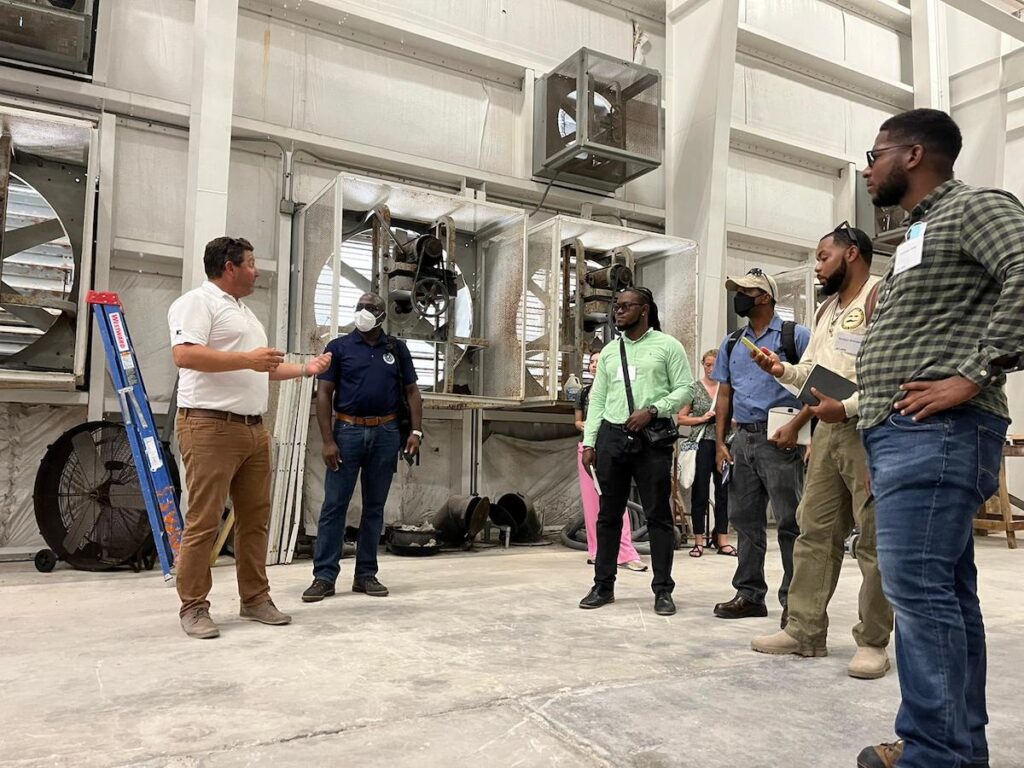
Fellows on guided tour visiting energy efficiency retrofits at Anatol Rodgers High School
Did you miss our information session webinars? Watch the recordings in full about the upcoming 2022-2023 Global Fellowship Program with details about the curriculum, program structure and current fellows discussing what it takes to participate and what they gained from experience.
For the Caribbean recording
For the Nigerian cohort
Follow @RMI_Islands and @RMI_Africa on Twitter for more updates about the Global Fellowship Program (#ETAFellows) and the Energy Transition Academy or visit rmi.org/eta
